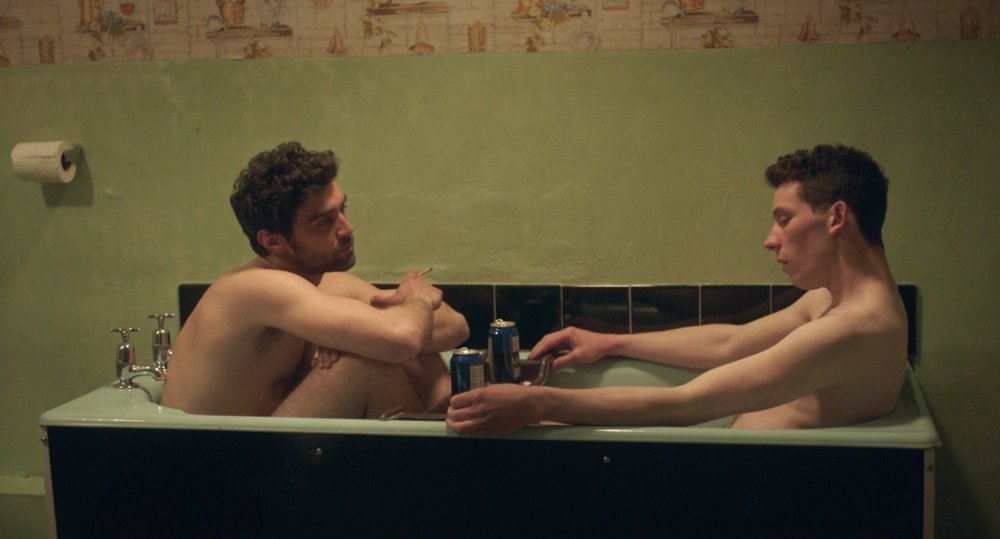Juliette Rowsell casts her thoughts on Francis Lee’s local masterpiece and why it we need it on our screens now, more than ever.
It feels remarkable that Francis Lee’s directorial debut was written before the implications of last year’s Brexit referendum. A love story between a permanently-frowning farmer and a Romanian immigrant backdropped by the cold Yorkshire Dales, doesn’t exactly scream mainstream appeal. But God’s Own Country ties these threads together with such beautiful tenderness, that you can’t help but fall for this gritty Northern love story. With stunning performances from all cast members, this is a film that ties issues of racism, homosexuality and illness seamlessly together, and lets its charm do the talking.
While Johnny (Josh O’Connor) is consistently drowning his sorrows and sleeping around to distract from the burden of taking over the family farm from his ill father, Gheorghe (Alec Secareanu), who is brought in as an extra pair of hands to help maintain the farm, is his polar opposite. Gheorghe is hardworking, determined, and Romanian. Johnny’s initial racism feels uncanny in a post-Brexit Britain but, despite this, a romance blossoms between the pair as they work silently on the Yorkshire Dales. The relationship between the two is organic and as natural as the world surrounding them.

The film feels refreshing in the LGBTQ cannon: the homosexual experience depicted isn’t one of struggle, but of action. The result is beautifully subtle. The pair are not met with homophobic slurs, but with silence. In one particularly powerful scene, Johnny’s grandmother discovers his affair after finding a condom under the two men’s scattered clothes on the bedroom floor. We see her crying into her grandson’s shirt (or, even his lover’s shirt) at the shock.
And, indeed, the word ‘homosexuality’ isn’t mentioned in the film once. Johnny’s grandmother tells him, ‘Gheorghe is here for work, and work only’: despite the ambiguity, her message is perfectly clear. It is passive aggressive discontent that is being dealt with here.
‘Lee presents us with a world of unspoken sentiments that bursts with raw emotion, something that eclipses even the power of the Yorkshire Dales.’
But at the heart of the film, the real struggle Johnny faces is emotional acceptance. After years of closing himself off and feeling lost in the oppressive magnitude of the open air, Johnny slowly opens up, abandoning his prejudices along the way. Johnny becomes like the lambs that he and Gheorghe tend to: he gradually sheds his skin, layer by layer, and makes himself vulnerable to the harsh realms of life.
The final result, no matter how nuanced, is one that is universal. Ideas of succumbing to emotion, to feeling, to life outside of our own, are powerful to us all. We are given an ode to all the quiet love stories that don’t involve balconies and candle lit dinners, but mud and hard work. Ultimately, Lee presents us with a world of unspoken sentiments that bursts with raw emotion, something that eclipses even the power of the Yorkshire Dales.
Juliette Rowsell
(Image courtesy of BFI)

